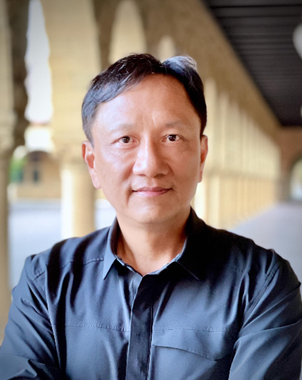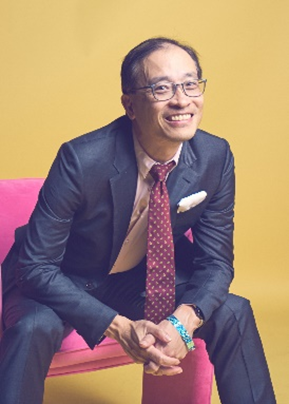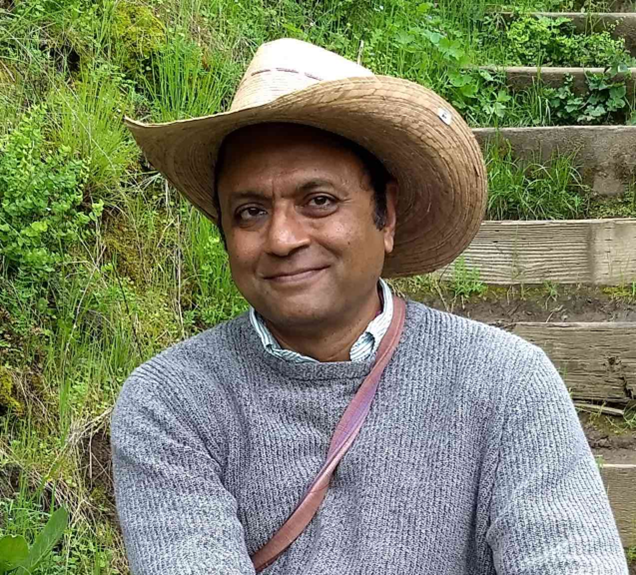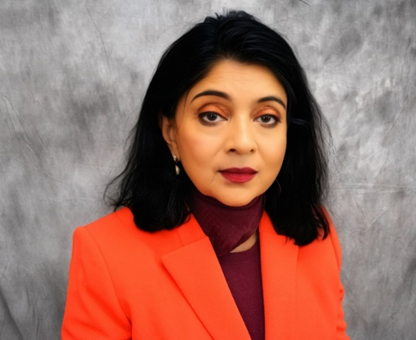MIPR & IRI Keynote Speakers
Advancing Beyond LLM Limitations Through Adaptive Multi-Modal Multi-Agent Systems
Edward Y. Chang
Stanford University

Abstract:
Current large-scale Language Models (LLMs) face fundamental limitations in complex planning tasks despite their increasing scale. These models exhibit four critical constraints: maximum likelihood bias that favors common but suboptimal solutions, inability to validate their own outputs, attention mechanisms that lose track of long-range dependencies, and compounding errors in multi-step reasoning chains. This talk presents a novel solution: an adaptive multi-agent framework where specialized agents process and integrate multiple modalities of information—from text and numerical data to visual and temporal signals. Through a distributed architecture with hierarchical validation, our system enables each agent to focus on specific tasks and modalities while maintaining global consistency across all information types. We'll demonstrate this approach through real-world planning scenarios, showing how architectural innovation in multi-modal, multi-agent systems, rather than continued scaling of single-modality models, offers a more promising direction for advancing AI capabilities.
Bio: Edward Y. Chang is an adjunct professor of computer science at Stanford University since 2019. He has been a pioneer in data-driven large-scale distributed learning, AI-driven healthcare, and advancing LLMs beyond their limitations to improve reasoning, planning, and decision-making. Previously, Chang served as President of HTC Research & Healthcare(2012-2020), where he led AI-powered precision medicine initiatives, including mobile health monitoring and disease prediction. From 2006 to 2012, he was Director of Research at Google, where he spearheaded advancements in parallel machine learning infrastructure, Google Q&A, and social media analytics. In academia, he was a tenured professor at UC Santa Barbara (1999-2006), an adjunct professor at HKUST (2012-2015), and a visiting professor at UC Berkeley (2017-2020). He was recognized as a Fellow of ACM and IEEE for his contributions to scalable machine learning and AI-driven healthcare and was awarded the XPRIZE Tricorder $1M prize for his work on AI-powered medical IoTs. Chang holds an M.S. in Computer Science and a Ph.D. in Electrical Engineering, both from Stanford University.
The Future of Discovery Assistance
Ed H. Chi
Google DeepMind

Abstract:
Our field has shifted from traditional machine learning techniques that are mostly based on pattern recognition to sequence-to-sequence models. The future of universal personal assistance for discovery and learning is upon us. How will multimodality image, video, and audio understanding, and reasoning abilities of large foundation models change how we build these systems? I will shed some initial light on this topic by discussing some trends: First, the move to a single multimodal large model with reasoning abilities; Second, the fundamental research on personalization and user alignment; Third, the combination of System 1 and System 2 cognitive abilities into a single universal assistant.
Bio: Ed H. Chi is VP of Research at Google DeepMind, leading machine learning research teams working on large language models (from LaMDA leading to launching Bard/Gemini), and neural recommendation agents. With 39 patents and ~200 research articles, he is also known for research on user behavior in web and social media. As the Research Platform Lead, he helped launched Bard/Gemini, a conversational AI experiment. His research also delivered significant improvements for YouTube, News, Ads, Google Play Store at Google with >930 product landings and ~$9B in annual revenue since 2013. Prior to Google, he was Area Manager and Principal Scientist at Xerox Palo Alto Research Center's Augmented Social Cognition Group in researching how social computing systems help groups of people to remember, think and reason. Ed earned his 3 degrees (B.S., M.S., and Ph.D.) in 6.5 years from University of Minnesota. Inducted as an ACM Fellow and into the CHI Academy, he also received a 20-year Test of Time award for research in information visualization. He has been featured and quoted in the press, including the Economist, Time Magazine, LA Times, and the Associated Press. An avid golfer, swimmer, photographer and snowboarder in his spare time, he also has a blackbelt in Taekwondo.
LLMs (for code) sometimes make mistakes. When should I trust them?
Prem Devanbu
University of California, Davis

Abstract:
At UC Davis, we first introduced the possibility of using Language Models for code, back in 2012; since then, the idea has matured, and now LLMs are widely used for software-engineering related tasks. However, LLMs make a lot of mistakes when generating software-related artifacts; so what should a developer do with LLM output? We discuss some empirical findings, and some recent work on trying to get LLMs to provide a reliable indication of how confident they are in their output. If this indication is reliable, perhaps we can decide on a more rational way to use LLM outputs, balancing productivity gains with quality risk. We offer confidence-reliability (calibration) results for 2 tasks, code completion and code summarization, and speculate on what should happen next. Joint work with Toufique Ahmed, David Gros, Claudio Spiess and Yuvraj Virk (all students at UC Davis), Michael Pradel at Uni. Stuttgart, Amin Alipour at U. Houston and Susmit Jha at SRI; the talk discussed very recent work, including a new paper to be published ICSE 2025.
Bio: Prem Devanbu holds a B.Tech from IIT Madras, and a Ph.D from Rutgers University. After decades at Bell Labs in New Jersey, he joined UC Davis where he conducts research in software engineering. In 2021, he was awarded the ACM SIGSOFT Outstanding Research Award, and in 2022 the Alexander von Humboldt Research Award, and in 2024 the IEEE Computer Society Harlan Mills Award, all mostly for the ICSE 2012 "Naturalness of Software" paper from UC Davis, which showed that Language Models are effective for Code. He serves as co-chair of the Research Articles track of the Communications of the ACM, and is an ACM Fellow.
We Are (Still!) Not Giving Data Enough Credit
Alexei (Alyosha) Efros
University of California, Berkeley

Abstract:
For most of its existence, Visual Computing has been primarily focused on algorithms, with data treated largely as an afterthought. Only recently, with the advances in AI, did our field start to truly appreciate the singularly crucial role played by data, but even now we might still be underestimating it. In this talk, I will begin with some historical examples illustrating the importance of large visual data for visual analysis and synthesis. I will then share some of our recent work demonstrating the power of very simple algorithms when used with the right data, including scene analysis, model interpolation, and visual data attribution.
Bio: Alexei (Alyosha) Efros is a professor at EECS Department at UC Berkeley, where he is part of the Berkeley Artificial Intelligence Research Lab (BAIR). Prior to that, he was for a decade on the faculty of Carnegie Mellon University, and has also been affiliated with École Normale Supérieure/INRIA and University of Oxford. His research is in the area of computer vision and computer graphics, especially at the intersection of the two. He is particularly interested in using data-driven techniques to tackle problems where large quantities of unlabeled visual data are readily available. Efros received his PhD in 2003 from UC Berkeley. He is a recipient of CVPR Best Paper Award (2006), Sloan Fellowship (2008), Guggenheim Fellowship (2008), Okawa Grant (2008), SIGGRAPH Significant New Researcher Award (2010), three PAMI Helmholtz Test-of-Time Prizes (1999,2003,2005), the ACM Prize in Computing (2016), Diane McEntyre Award for Excellence in Teaching Computer Science (2019), Jim and Donna Gray Award for Excellence in Undergraduate Teaching of Computer Science (2023), and PAMI Thomas S. Huang Memorial Prize (2023).
Can Computers Create Art?
Aaron Hertzmann
Adobe Research

Abstract:
Can AI algorithms make art, and be considered artists? Within the past decade, the growth of new neural network algorithms has enabled exciting new art forms with considerable public interest. These tools raise recurring questions about their status as creators and their effect on the arts. In this talk, I will discuss how these developments parallel the development of previous artistic technologies, like oil paint, photography, and traditional computer graphics, with many useful analogies between past and current developments. I argue that art is a social phenomenon, that “AI” algorithms will not have human-level intelligence in the foreseeable future, and thus it is extremely unlikely that we will ever consider algorithms to be artists. However they, like past art technologies, will change the way we make and understand art.
Bio: Aaron Hertzmann is a Principal Scientist at Adobe Research, and Affiliate Faculty at University of Washington. He received a bachelor's degree in Computer Science and Art at Rice University and a PhD degree in Computer Science from New York University. He was previously a Professor of Computer Science at the University of Toronto for ten years. He has published over 120 papers in computer graphics, several subfields of AI, and in the science of art. He is an IEEE Fellow, an ACM Fellow, and winner of the 2024 SIGGRAPH Computer Graphics Achievement Award.
Trustworthy Artificial Intelligence for Securing Transportation Systems
Bhavani Thuraisingham
University of Texas, Dallas

Abstract:
Artificial Intelligence (AI) techniques ae being applied to numerous applications from Healthcare to Cyber Security to Finance. For example, Machine Learning (ML) algorithms are being applied to solve security problems such as malware analysis and insider threat detection. However, there are many challenges in applying ML algorithms for various applications. For example, (i) the ML algorithms may violate the privacy of individuals. This is because we can gather massive amounts of data and apply ML algorithms on the data to extract highly sensitive information. (ii) ML algorithms may show bias and be unfair to various segments of the population. (iii) ML algorithms themselves may be attacked possibly resulting in catastrophic errors including in cyber physical systems such as transportation systems. In this presentation, we discuss our research we are conducting as part of the USDOT National University Technology Center TraCR (Transportation Cybersecurity and Resiliency) led by Clemson University. In particular, we describe (i) the application of federated machine learning techniques for detecting attacks in transportation systems; (ii) publishing synthetic transportation data sets that preserves privacy, (iii) fairness algorithms for transportation systems, and (iv) examining how GenAI systems are being integrated with transportation systems to provide security. We also discuss aspects of securing multimedia and systems, and (iv) examining how GenAI systems are being integrated with transportation systems to provide security. We also discuss aspects of securing multimedia and multimodal data for transportation systems. Finally we discuss resiliency issues with respect to transportation systems where such systems and applications must continue to operate in the midst of attacks and failures
Bio: Dr. Bhavani Thuraisingham is the Founders Chair Professor of Computer Science and the Founding Executive Director of the Cyber Security Research and Education Institute at the University of Texas at Dallas (UTD). She is an elected Fellow of the ACM, IEEE, the AAAS, and the NAI. Her research interests are integrating cyber security and artificial intelligence/data science including as they relate to the cloud, social media, and Transportation Systems. She has received several technical, education and leadership awards including the IEEE CS 1997 Edward J. McCluskey Technical Achievement Award, the IEEE CS 2023 Taylor L. Booth Education Award, ACM SIGSAC 2010 Outstanding Contributions Award, the IEEE Comsoc Communications and Information Security 2019 Technical Recognition Award, the IEEE CS Services Computing 2017 Research Innovation Award, the ACM CODASPY 2017 Lasting Research Award, and the ACM SACMAT 10 Year Test of Time Awards for 2018 and 2019 (for papers published in 2008 and 2009). Her 44+ year career includes industry (Honeywell), federal research laboratory (MITRE), US government (NSF) and US Academia. Her work has resulted in 140+ journal articles, 300+ conference papers, 200+ keynote and featured addresses, seven US patents, sixteen books, and over 120 panel presentations including at Fortune Media, Lloyds of London Insurance, Dell Technologies World, United Nations, and the White House Office of Science and Technology Policy. She has also written opinion columns for popular venues such as the New York Times, Inc. Magazine, Womensday.com and the Legal 500, She received her PhD from the University of Wales, Swansea, UK, and the prestigious earned higher doctorate (D. Eng) from the University of Bristol, UK. She also has a Certificate in Public Policy Analysis from the London School of Economics and Political Science. She has been featured in the book by the ACM in 2024 titled: “Rendering History: The Women of ACM-W” as one of the 30+ “Women that Changed the Face of World Wide Computing Forever.”